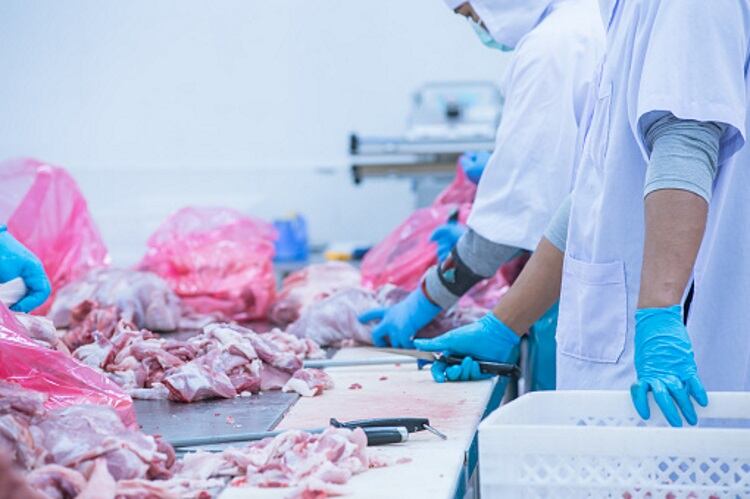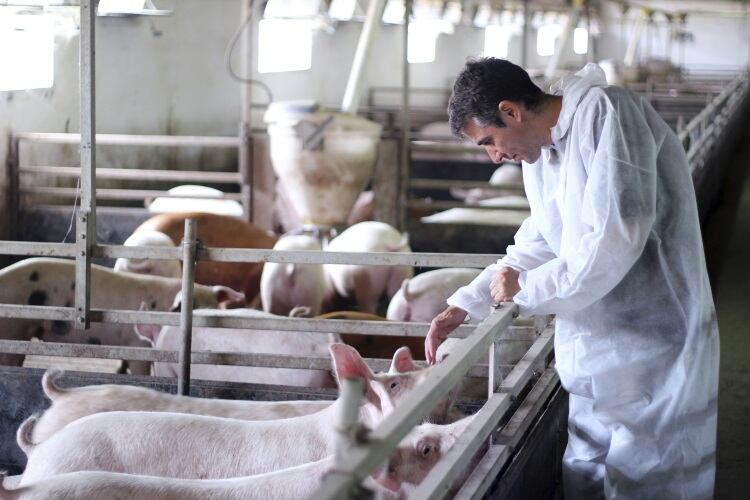Earlier this month, the Canadian government launched a new pilot scheme for Temporary Foreign Workers (TFW) that would give them the opportunity to obtain residency. Aimed squarely at the agricultural industry, it will be rolled out in 2020 and fill up to 2,750 roles in Canada.
Particularly, it is hoped this will shore up staff numbers in the Canadian meat processing industry, something the trade believes is sorely needed. According to Canadian Meat Council (CMC) data, the ongoing labour shortage is having critical impacts of lost sales for meat processors of CAD$750m annually, plus CAD$396m in lost sales for its value chain producers, also due to labour shortage, bringing the total economic impacts to the red meat sector to approximately CAD$1.15bn.
CMC president Chris White praised the initiative, especially as he felt previous schemes weren’t fit for purpose. “This pilot is vital to our sector. Our members provide year-round, permanent jobs. There’s nothing temporary about our need for a workforce, and the TFW program didn’t work for our members – this pilot gives them a solution,” he said.
This issue isn’t unique to Canada. Earlier this week, the US National Pork Producers Council stood before Congress at a House Agriculture Subcommittee on Livestock and Foreign Agriculture to outline issues impacting the domestic meat industry, and near the top of the list was difficulty in securing a workforce. Although subcommittee chairman Jim Costa pledged to work with the industry to address these issues, a significant step-change may be required to attract staff to the meat processing industry.
Vet shortage in the UK
Europe is seeing a similar issue, particularly in the UK where it’s likely to get worse thanks to Brexit. Veterinarian has been added to the Shortage Occupation List (SOL), due to difficulties in filling roles in this field, particularly by those trained in the UK and ahead of its impending exit from the EU.
A Migration Advisory Committee (MAC) review found that, in the meat sector, 95% of the veterinary workforce graduated overseas, with the “clear majority of these coming from the EU”. To help stop the rot, the MAC recommended a full review of high- and medium-skilled jobs if and when a new immigration system was implemented, and said migration rules should be relaxed for workers on the SOL.
It stated that working in UK slaughterhouses was not generally considered attractive to UK citizens qualified as veterinarians. In the study, it was highlighted how much the issue had grown between 2015 and 2018. Citing a survey conducted by the British Veterinary Association (BVA), it found that the percentage of advertised vacancies receiving no applications had increased from 1% in 2015 to 5% in 2018. Similar adverts receiving three or fewer applicants has increased from 31% in 2015 to 44% in 2018. This is likely to be exacerbated by the Brexit situation, with labour legislation for overseas workers in the UK not quite clear.
'Support needed'
Then we move to Australia, where a discussion paper published by the Australian Meat Industry Council (AMIC), revealed that 63% of red meat processors are prevented from running at capacity due to ‘Labour Deficit Epidemic’. AMIC research also found that there are currently 3,780 job vacancies in the red meat industry.
The report also identified four key employment areas that are in “dire need of government support” These are: training; skilling the long-term unemployed; access to overseas workers with fit-for-purpose visas as part of a total employee mix and permanent migration into regional areas.
However in this case, political support hasn’t been completely welcomed. The opposition party to the Australian government suggested that overseas workers be given incentives to work in the meat industry including increased salaries but AMIC said this will “add tens of millions to the industry’s wage bill, significantly impacting the industry’s ability to achieve a permanent and stable workforce”.


